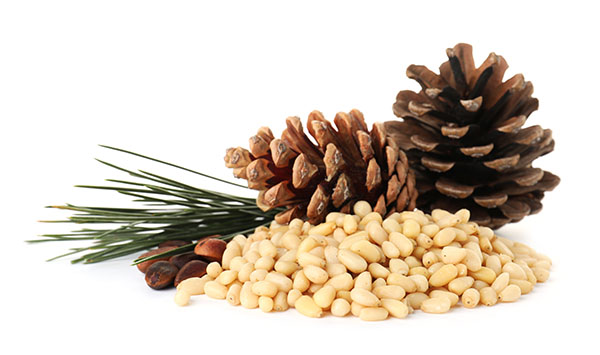
Advertisement
Black pepper (fruit of Piper nigrum) has been around since time immemorial and has long been thought to possess healing properties, according to Sanskrit medical volumes dating back more than 3,000 years.
During the Middle Ages, black pepper was rare, expensive, incredibly in demand and so highly-priced that in 410 A.D., Visigoths demanded 3,000 pounds of black pepper as part of their ransom for the city of Rome.
Dubbed the “king of spices,” black pepper was a valuable commodity that served as a tribute in the Middle Ages. It powered economies and was considered one of the driving forces of the spice trade. Yet now, that pepper is never far away from our fingertips in the grinder next to the salt in our kitchen.

A superfood in its own right, black pepper offers many science-backed health benefits. Here are some of them.
Contains high levels of health-supporting plant compounds
A study published in the journal Critical Reviews in Food Science and Nutrition confirmed that black pepper is an important healthy food.
Aside from its active ingredient, piperine, researchers reported that black pepper also contains volatile oil constituents (piperamides and nerolidol), alkaloids (piperine and chavicine) and oleoresins, which exhibit antioxidant, anti-depressant, anti-inflammatory, antimicrobial and gastro-protective activities.
Provides high amounts of antioxidant vitamins and polyphenols
Black pepper is a rich source of potent antioxidants, such as vitamins C and E, beta carotene, lutein and zeaxanthin. A study published in the journal Advances in Experimental Medicine and Biology also reported that piperine, which is responsible for black pepper’s distinct biting quality and pungent arom, has many pharmacological effects.
In addition to its potent antioxidant properties, piperine’s anti-inflammatory activities can protect against chronic diseases, such as arthritis, cancer, diabetes and heart disease. Piperine has also been reported to help with hepatic steatosis, or fatty liver disease, and insulin resistance.
A study published in the journal Arthritis Research & Therapy confirmed piperine’s anti-arthritic, anti-inflammatory and anti-nociceptive effects in an arthritis animal model. Tests resulted in less joint swelling and fewer blood markers of inflammation.
Another animal study published in the Journal of Pharmacy and Pharmacology reported that piperine suppressed inflammation in the airways caused by asthma and seasonal allergies.
Increases “good cholesterol”
In an animal study published in Current Research in Biotechnology, researchers found that a diet supplemented with black pepper can significantly increase high-density lipoprotein, or “good cholesterol,” levels. Researchers believe this warrants further studies to confirm the beneficial effects of black pepper on lipid metabolism in humans.
Helps fight cancer
The high piperine content of black pepper’s oleoresin has been shown to be effective against most types of cancers. Piperine also helps increase the absorption of nutrients, such as selenium, beta-carotene and B vitamins, in the intestines.
A Canadian study published in the journal Molecular Carcinogenesis found that piperine inhibits the growth of human colon cancer via G1 phase cell cycle arrest and apoptosis (cell death).
A comprehensive review published in the journal Nutrients also found that piperine can suppress the proliferation of breast and prostate cancer cells. The alkaloid was also found to enhance the effectiveness of docetaxel, a chemotherapy medication used to treat prostate cancer.
Supports healthy cognitive functions
Piperine in black pepper has been shown to inhibit an enzyme (monoamine oxidase A) that breaks down serotonin (controls your mood), epinephrine (adrenaline) and norepinephrine (regulates arousal, attention, cognitive function and stress reactions) and disrupts the production of the “feel good” hormone, dopamine.
Piperine also inhibits the enzyme (hepatic cytochrome P450) that impairs the functioning of the hormone melatonin, which regulates your sleep-wake cycle.
Several studies have shown that piperine may improve brain function and reduce symptoms associated with degenerative brain conditions, such as Alzheimer’s disease. In a study published in the journal Cellular and Molecular Neurobiology, piperine significantly improved (working and reference) memory performance in rats with Alzheimer’s and reduced the formation of amyloid plaques, the damaging protein fragments that first develop in areas of the brain linked with memory and cognitive function.
Supports gut health
Studies suggest that black pepper not only helps boost nutrient absorption, it also exerts prebiotic effects. Piperine from black pepper has been shown to help regulate human intestinal microbiota and enhance gastrointestinal health.
A healthy gut microbiota is vital for a well-functioning immune system. Having a healthy gut ensures that your body has a strong immune defense against disease-causing pathogens.
Supports sensible weight management goals
Black pepper is a rich source of vitamins (A, B1, B2, B5, B6, B9, C, E and K), minerals (calcium, copper, iron, magnesium, manganese, phosphorus, potassium, selenium and zinc) and healthy fatty acids.
Consuming food seasoned with black pepper helps your body burn calories hours after eating. Black pepper has also been found to help prevent the creation of new fat cells, suppressing fat accumulation. (Related: Black pepper could help fight obesity: Research shows it lowers body fat and blood sugar.)
There is no scientific evidence that black pepper causes major health risks or side effects. However, consuming too much may cause digestive stress, which is true for most herbs and spices. Nevertheless, black pepper is a great addition to a healthy diet as its beneficial components can support overall health.
Watch the following video to learn more about the benefits of black pepper.
This video is from the Holistic Herbalist channel on Brighteon.com.
More related stories:
The health benefits of antioxidant-rich black pepper and piperine.
Black pepper is the “king of spices,” thanks to these 11 health benefits.
Skin pigment disease reversed with piperine nutrient from black pepper.
Sources include:
Advertisements







